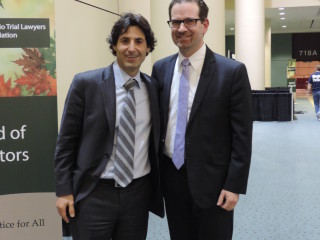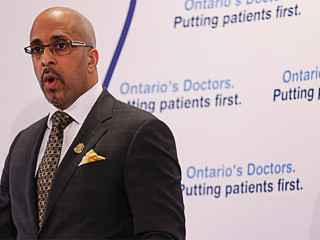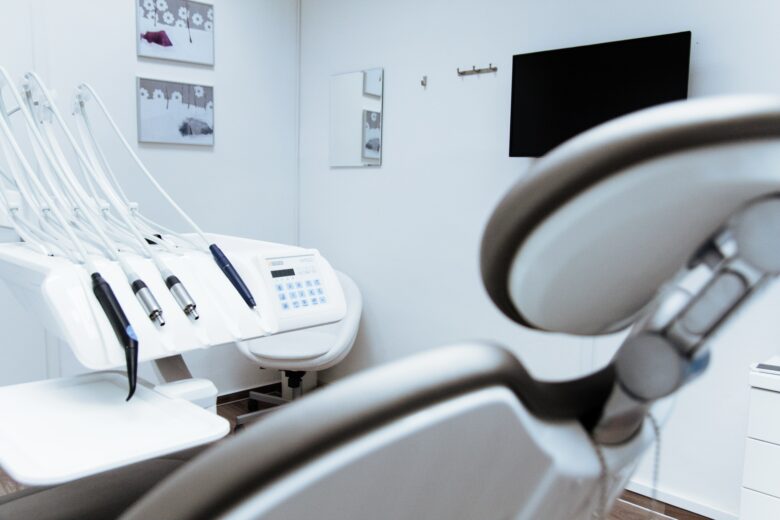Full Decision
Warlow v. Dr. Sadeghi is a case where the Plaintiff was unsuccessful at an informed consent trial. The modified objective test was applied.
Introduction
Warlow v. Dr. Sadeghi is a dental malpractice case arising out of oral surgery performed by the Defendant, Dr. Sadeghi, to remove an impacted wisdom tooth on the Plaintiff, Ms. Warlow. During the surgery, the Defendant dentist injured a nerve in the Plaintiff’s jaw, causing permanent and debilitating nerve pain. It was agreed prior to trial that the Defendant dentist had not breached the standard of care and that the Plaintiff had suffered a nerve injury. The focus of this trial was on whether the Defendant dentist had obtained informed consent from the Plaintiff prior to surgery.
Facts
Prior to this incident, the Plaintiff was healthy, was working full-time as a server and had a very active social life. She had gotten a new job as a flight attendant and just started her intensive training for this position when she suffered from a painful toothache and facial swelling. After consulting with a general dentist and an emergency dentist, she was referred to an oral and maxillofacial surgeon for an extraction of her lower right impacted wisdom tooth. Prior to surgery, the Plaintiff signed a generic consent form for oral surgery, indicating that she was aware of the risk of temporary and/or permanent numbness or altered sensation of the lower lip, chin, gums or tongue.
The Defendant dentist performed the extraction. He testified that the amount of bleeding caused him to believe that he injured the inferior alveolar nerve (“IAN”) located close to the extracted tooth. Post-surgery, the Plaintiff continued to experience numbness and pain in her lip and chin, which eventually escalated to a burning sensation, electric shocks and throbbing pain.
The Plaintiff subsequently saw a number of specialists after this incident seeking treatment for the persistent pain, including an oral science specialist, pain specialists, and her family doctor. She was eventually referred to a neurosurgeon with expertise in neuropathic face pain. He opined that her facial pain was caused by the injury to the IAN and that this type of pain is particularly hard to treat. She underwent motor cortex stimulation surgery to have an electrode implanted in her brain and a battery pack implanted in her chest. She had to have a second surgery a couple years later to remove these devices as they were ineffective at relieving her pain symptoms.
The Plaintiff was unable to resume her flight attendant training program. She eventually lost her job. She resumed working as a server but was unable to work to the same capacity as she used to. Both the quality of her work and her income were adversely affected by her pain.
Test for Informed Consent
The trial focused specifically on the issue of whether the Defendant dentist had obtained informed consent from the Plaintiff prior to surgery. After a review of applicable case law, the Court summarized the test for establishing a claim based on a lack of informed consent. The Plaintiff must prove, on a balance of probabilities, two elements:
- A risk that should have been disclosed was not disclosed or inadequately disclosed prior to the procedure; and
- A reasonable person in the Plaintiff’s circumstances would not have consented to the procedure if properly advised of this risk.
The Risk of Nerve Pain
The Court first focused on what risks were disclosed by the Defendant. The Plaintiff and Defendant provided different accounts of their discussions of the risks, although both parties agreed that the standard consent form was signed.
The Plaintiff recalled that the Defendant told her about the possibility of nerve damage but did not advise her that it could be permanent (she understood it as “pins and needles”). The Defendant, by contrast, outlined his standard practice for discussions of the risks of the surgery and commented on his notes indicating that he had this discussion with the Plaintiff.
After hearing the evidence, the Court ultimately concluded that it was more likely than not that the Defendant dentist had discussed alternatives to extraction (along with the risks of these alternatives) as well as the risk of “temporary or permanent nerve injury” when extracting the wisdom tooth.
The Court then went on to discuss whether the Defendant should have disclosed explicitly that permanent nerve pain was a possible outcome.
The Plaintiff argued that the Defendant’s description of “pins and needles” was not adequate informed consent as this description did not inform her of severe, debilitating, chronic neuropathic pain. The Defendant argued that he did not use the term “pain” when disclosing the risks of this procedure as he did not want to cause unnecessary anxiety for his patients, and that he did not quantify the risk of an injury to the IAN.
The Court concluded that the Defendant dentist ought to have used the term “pain” in describing the consequences of the risk of nerve injury to the Plaintiff, as his description of “pins and needles” made the impact of a potential nerve injury seem minor. However, the Court also commented that the evidence does not establish that “severe, debilitating, chronic neuropathic pain” was a reasonably foreseeable risk. As such, the Court concluded that the Defendant’s description of the consequences of the IAN injury as “temporary or permanent” was adequate; he was not obligated to quantify this risk.
Issue of Consent
The Plaintiff argued that she would not have undergone the surgery had she known about the risk of permanent neuropathic pain.
The Court commented on the circumstances that were relevant to the reasonable person analysis. First, it was noted that the Plaintiff would have been concerned about avoiding a recurrence of acute gum infection, particularly in the face of a new career. Second, the Plaintiff had been advised by both her general dentist and an emergency dentist that the extraction of her wisdom tooth was the best option. She generally trusted and relied on the advice of health professionals. Third, the extraction of a wisdom tooth is a common procedure. Fourth, the Plaintiff had undergone previous dental work. Finally, she consented to the surgery knowing that there was a risk of temporary or permanent nerve injury.
The Court ultimately concluded that an adequately informed reasonable person in the Plaintiff’s position would have proceeded with the surgery.
Disposition
The Court found that the Defendant dentist had not adequately informed the Plaintiff of the risk of temporary or permanent nerve pain from a wisdom tooth extraction. However, the Court also concluded that this risk was too remote, and as such, was not required to be expressly disclosed. Overall, the Court found that a reasonable person in the Plaintiff’s circumstances would have proceeded with the surgery regardless of this risk.
The Plaintiff was unable to prove the requisite elements in order to establish a lack of informed consent. The claim was dismissed.












